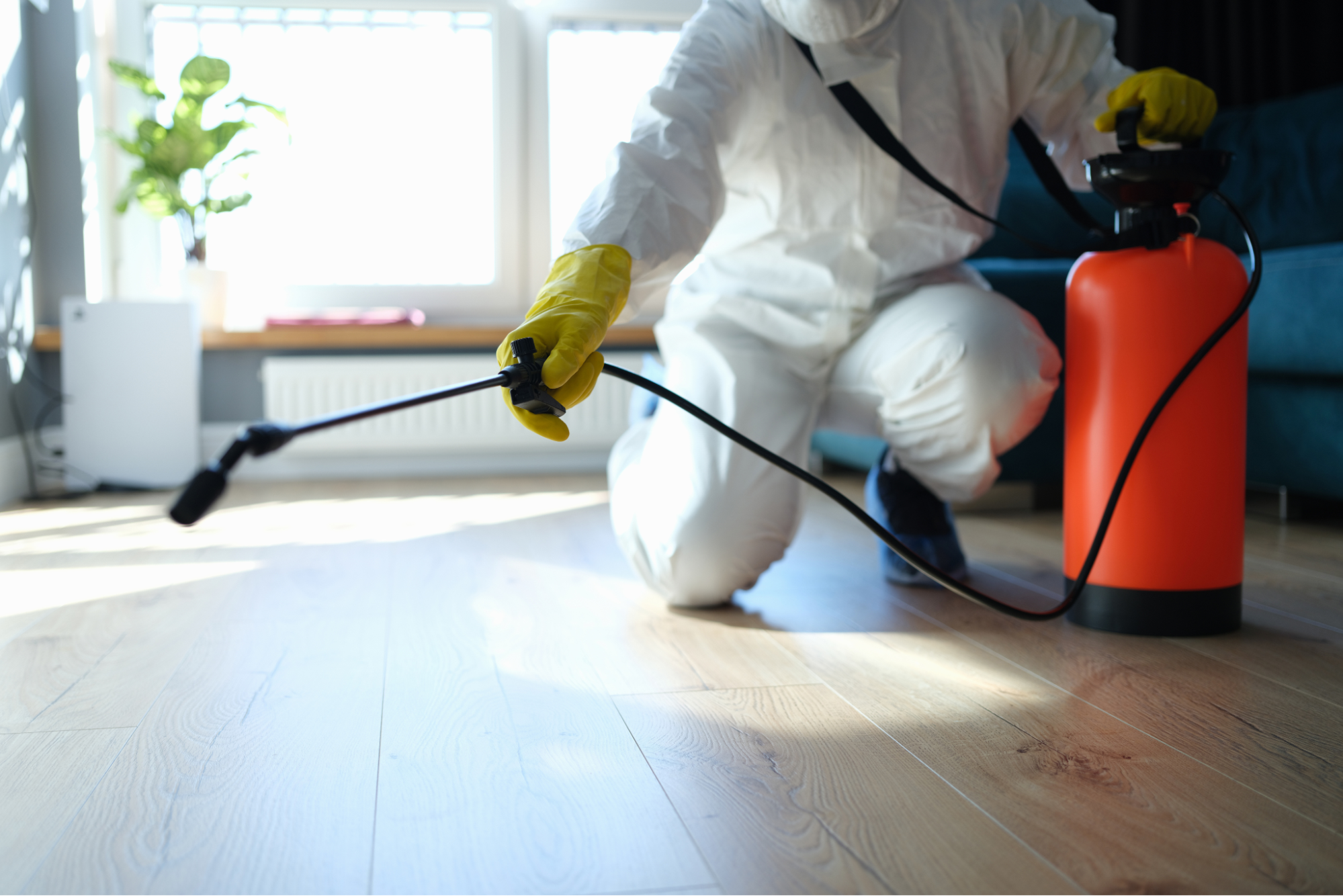A1 Commercial Pest Control Portland - Effective Bed Bug Solutions for Companies
Grasping the Art of Insect Control: Proven Approaches for Long-Term Prevention and Removal
Parasite infestations can be a relentless challenge for companies and house owners alike, requiring a calculated approach to efficiently take care of and remove these unwanted trespassers. By grasping the art of pest control through tested methods for long-term prevention and elimination, one can develop a proactive defense versus possible threats. Understanding the habits of bugs, applying incorporated pest monitoring methods, and utilizing natural treatments are simply a couple of vital parts necessary to accomplishing lasting success in this undertaking. However, the ins and outs of preserving cleanliness, conducting regular inspections, and persistent surveillance play just as critical duties in sustaining a pest-free environment. As the battle against parasites remains to advance, taking on a detailed strategy ends up being extremely important in safeguarding your residential or commercial property from possible harm.
Comprehending Parasite Habits
To effectively execute insect control approaches, it is crucial to comprehend the complex actions displayed by numerous parasites in different atmospheres. Comprehending pest behavior is a fundamental element of developing reliable parasite management plans. Each insect species has special routines and choices that affect their feeding, movement, and breeding patterns. By studying these behaviors, bug control experts can determine one of the most vulnerable factors in the pest's life process to target interventions better.
For instance, rodents like rats and computer mice are nighttime creatures that prefer dark, secluded areas close to a food source. a1 portland bed bug exterminator. Understanding this, insect control specialists can concentrate on securing entry factors and eliminating food attractants to discourage these parasites. On the other hand, pests such as roaches grow in cozy, humid locations with accessibility to water. By attending to dampness problems and sealing fractures and gaps, problems can be significantly lowered.
Applying Integrated Insect Management
Carrying Out Integrated Parasite Monitoring entails utilizing an all natural method to attend to parasite problems by combining different control tactics and methods. This approach highlights prevention, tracking, and control of bugs with a mix of biological, social, physical, and chemical treatments. By incorporating several methods, Integrated Insect Administration (IPM) intends to minimize the usage of chemicals while effectively taking care of pest populations.
Prevention is additionally a basic principle of IPM, focusing on eliminating aspects that draw in parasites, such as sanctuary, water, and food. Normal tracking and evaluation are essential to find parasite problems early and prevent them from intensifying.
Additionally, IPM advertises the usage of lasting and ecologically friendly parasite control techniques to reduce injury to non-target microorganisms and the bordering ecological community - a1 portland bed bug exterminator. By adopting an Integrated Bug Monitoring method, individuals and businesses can efficiently handle bugs while reducing reliance on chemical pesticides
Making Use Of Natural Solutions
Structure upon the foundation of Integrated Insect Administration, a change towards raccoon control making use of all-natural solutions provides an environmentally friendly method to pest control. All-natural remedies harness the power of nature to discourage and remove insects without making use of extreme chemicals that can harm the environment, humans, and advantageous microorganisms.

In addition, planting pest-repelling plants like marigolds, lavender, and mint around gardens and homes can aid discourage parasites naturally. These plants produce smells that bugs discover unpleasant, driving them away without the need for chemical intervention.
Keeping Sanitation and Health

Consistently evaluating and cleaning up hard-to-reach areas such as behind devices, under sinks, and in storage closets is important for recognizing and removing potential bug environments. Clutter must be minimized as bugs frequently seek refuge in heaps of things or particles. Executing a routine cleansing routine and making certain all members of the house or employees are informed on proper health techniques can go a long way in bug avoidance. By maintaining cleanliness and health requirements, the setting becomes less hospitable to bugs, eventually supporting long-term insect control initiatives.
Regular Inspections and Surveillance
Regular inspections and keeping track of play a vital duty in proactively identifying and resolving possible insect problems before they rise. By performing routine assessments of both the interior and outside of look at here now a home, pest control experts can identify early indicators of problems, parasite access factors, and conditions favorable to insect activity.
Consistent monitoring enables the early discovery of parasite troubles, making it possible for speedy intervention to avoid extensive invasions that can be pricey and difficult to eradicate. In addition, normal inspections and keeping an eye on aid to adhere to regulative requirements and keep a safe, pest-free environment for occupants. Implementing an aggressive method through routine inspections and tracking is a foundation of efficient parasite management, giving comfort and lasting protection versus insect hazards.
Verdict
Finally, mastering the art of bug control includes understanding bug habits, applying incorporated insect management, using natural treatments, maintaining tidiness and hygiene, and conducting routine inspections and monitoring. By complying with these tested methods for long-term avoidance and removal, people can successfully take care of parasite invasions and develop a healthier and much safer setting for themselves and their environments.
To effectively carry out parasite control strategies, it is vital to understand the elaborate habits exhibited by different parasites in different atmospheres (a1 portland bed bug exterminator). By researching these behaviors, pest control experts can determine the most at risk factors in the parasite's life cycle to target treatments more effectively
Carrying Out Integrated Parasite Management involves using an all natural technique to address parasite issues by combining various control strategies and methods. By preserving tidiness and health requirements, the environment comes to be less hospitable to insects, inevitably sustaining long-lasting pest control initiatives.
By what is vermin control performing routine evaluations of both the inside and exterior of a home, parasite control specialists can identify early indicators of infestations, bug entrance factors, and conditions favorable to insect task.